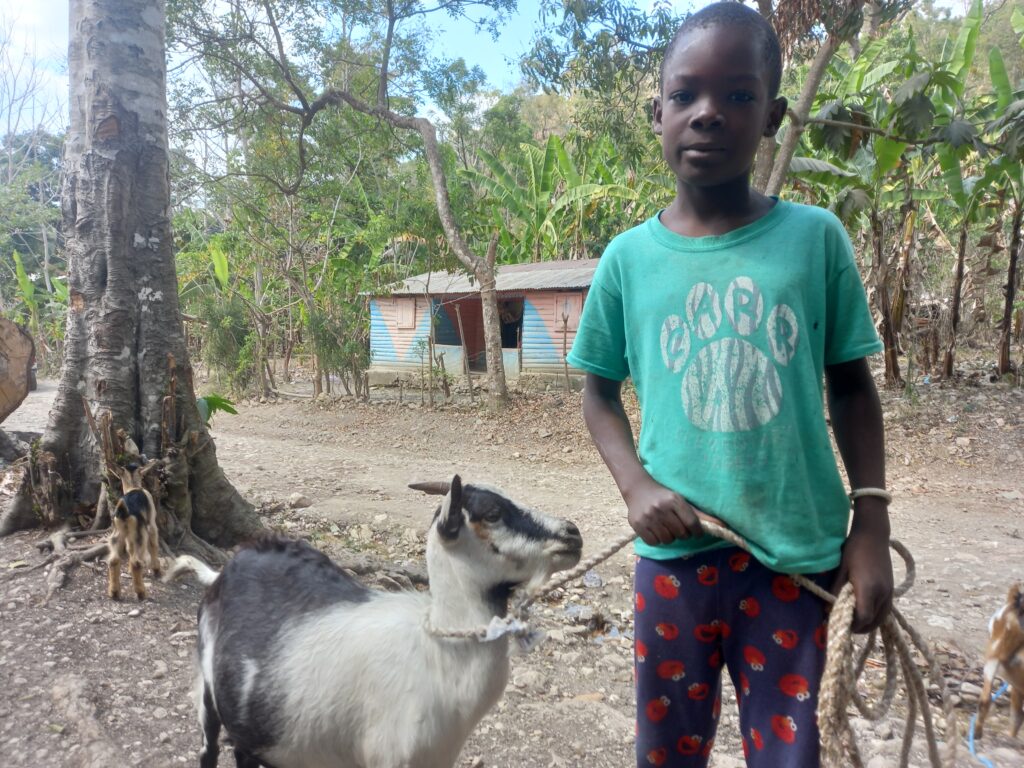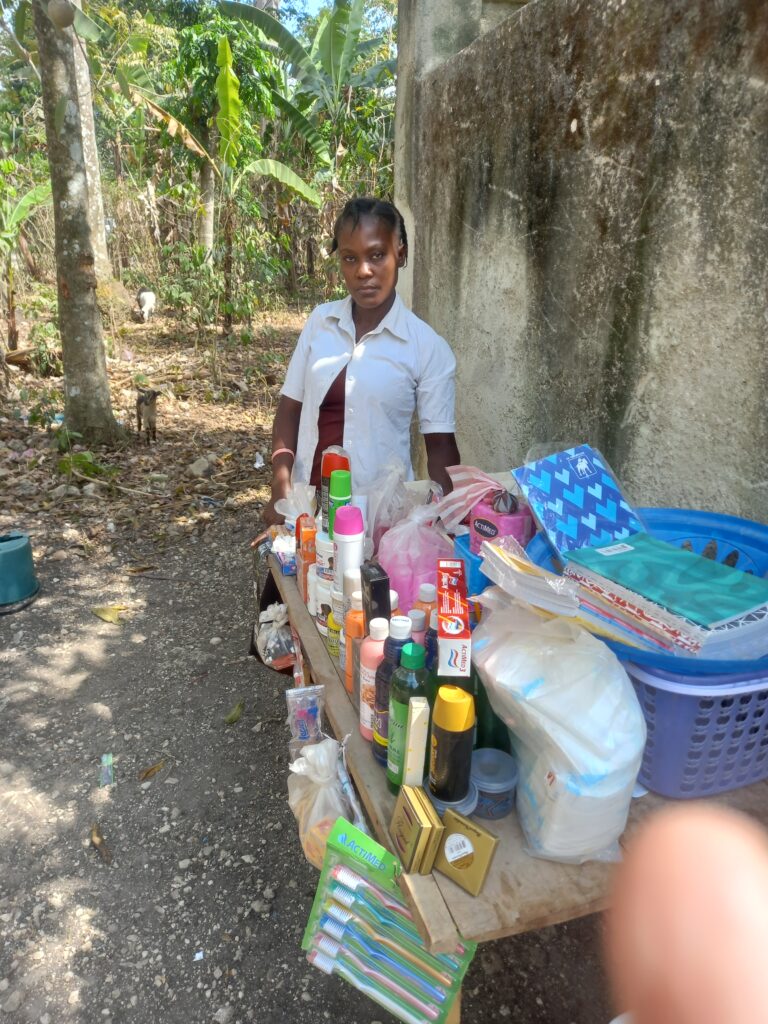Johanne and her husband were Haitians living in the Dominican Republic. Their three boys were living there with them.
She didn’t have the documents to give her legal status. The family had ongoing expenses, and she could not find work to help cover them. So the couple decided that she would return with the boys to Savanèt, where she was born and raised. Her husband stayed in the DR. He helped her rent a room for 7,500 gourds, about $50, per year. But she says that he soon found another women back where he lives, and has shown no further interest in her or their children.
When her rent was about to come due, the owner decided to double it to 15,000. There was no way for her to pay. She had just moved back to the region, and owned almost nothing. Her only source of income was occasionally doing laundry for neighbors. She looked around, and eventually found a room she could rent for just 4,000, though it is only for six months. She moved in with the boys and her mother, who helps manage the house.
She asked the CLM program for goats and small commerce. She knew she needed to create regular income to feed her boys because she has no land to farm. So, she asked for just one goat, which left her 8,000 gourds to invest in merchandise.
She and her boys take good care of the goat, and it has already had its first kid. When she began to think about investing in commerce, however, she hesitated. She realized that 8,000 gourds was more than she knew what to do with. She didn’t want to waste it. So she took 5,000, put it together with a pay out from her savings club, and bought a second goat. If she keeps succeeding with the goats, she would like to buy a cow.

She then took 3,000 and invested it in detergent and laundry soap. That sold well, but when the price of detergent rose, she switched to school supplies. She makes weekly contributions to a savings and loan association, and used a first loan from the association of 5,000 gourds to add some cosmetics to her business. “Hair jell sells the best.” When she finishes repaying that loan, she’ll take another. She would like to add detergent, laundry soap, and basic groceries to the business next.

With her rent due in the next couple of months, she is anxious to get into her own home. At first she thought it would be impossible. She owns no land. But that is where Webert is helping out.
He is a local carpenter and a preacher at her church. He also serves as a volunteer on the committee that the CLM team organized of local leaders willing to give the program and its members their support. Webert offered to sell Johanne a small plot of land for 75,000 gourds. That would be impossible for her except that Webert is willing to let her take possession of the land and build her house on it without any downpayment whatsoever. He discussed the decision with his wife, who agrees with it, but they have had to ask Johanne and her case manager not to let anyone else know. They’ve told people in their community that Johanne has paid some of the money already.
Johanne will be able to invest earnings from goats and from her growing business into the land. It will come slowly, because she also has to take care of her boys. But Webert and his wife are willing to wait.
